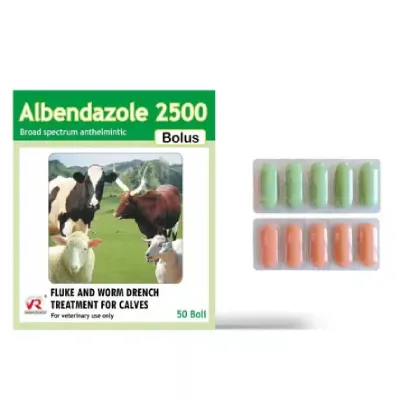- Afrikaans
- Albanian
- Amharic
- Arabic
- Armenian
- Azerbaijani
- Basque
- Belarusian
- Bengali
- Bosnian
- Bulgarian
- Catalan
- Cebuano
- Corsican
- Croatian
- Czech
- Danish
- Dutch
- English
- Esperanto
- Estonian
- Finnish
- French
- Frisian
- Galician
- Georgian
- German
- Greek
- Gujarati
- Haitian Creole
- hausa
- hawaiian
- Hebrew
- Hindi
- Miao
- Hungarian
- Icelandic
- igbo
- Indonesian
- irish
- Italian
- Japanese
- Javanese
- Kannada
- kazakh
- Khmer
- Rwandese
- Korean
- Kurdish
- Kyrgyz
- Lao
- Latin
- Latvian
- Lithuanian
- Luxembourgish
- Macedonian
- Malgashi
- Malay
- Malayalam
- Maltese
- Maori
- Marathi
- Mongolian
- Myanmar
- Nepali
- Norwegian
- Norwegian
- Occitan
- Pashto
- Persian
- Polish
- Portuguese
- Punjabi
- Romanian
- Russian
- Samoan
- Scottish Gaelic
- Serbian
- Sesotho
- Shona
- Sindhi
- Sinhala
- Slovak
- Slovenian
- Somali
- Spanish
- Sundanese
- Swahili
- Swedish
- Tagalog
- Tajik
- Tamil
- Tatar
- Telugu
- Thai
- Turkish
- Turkmen
- Ukrainian
- Urdu
- Uighur
- Uzbek
- Vietnamese
- Welsh
- Bantu
- Yiddish
- Yoruba
- Zulu
12월 . 25, 2024 08:16 Back to list
Can Injectable Ivermectin Be Administered Orally to Pigs for Treatment?
The Use of Injectable Ivermectin in Swine Can It Be Administered Orally?
Ivermectin is a widely recognized antiparasitic agent that has revolutionized the treatment of various infestations not only in humans but also in veterinary medicine. Historically, this drug has been employed effectively to combat parasitic infections in livestock, including swine. While ivermectin is primarily available in injectable forms for swine, questions often arise regarding the feasibility and efficacy of administering it orally. This article aims to evaluate whether injectable ivermectin can be given orally to swine and the implications of such a practice.
Understanding Ivermectin and Its Forms
Ivermectin is a macrocyclic lactone that acts by interfering with the neuromuscular functions of parasites, leading to their paralysis and eventual death. In veterinary applications, injectable ivermectin is commonly used for treating infestations such as strongyles, lice, and mites in pigs. It is administered subcutaneously and allows for rapid distribution throughout the animal's body, providing effective relief from parasites.
However, the oral administration of injectable ivermectin raises important questions. Injectable formulations often contain specific carriers and stabilizers that are not intended for oral bioavailability. These additives can affect how the drug interacts within an animal's digestive system and whether it reaches systemic circulation effectively.
Can Injectable Ivermectin Be Given Orally?
From a pharmacological standpoint, injectable ivermectin is not recommended for oral administration. The formulation design is optimized for subcutaneous absorption, which facilitates a more controlled release of the active ingredient into the bloodstream. When administered orally, the drug's absorption may be significantly altered. The gastric environment can affect the stability of the formulation, potentially leading to reduced efficacy. Furthermore, the bioavailability of ivermectin varies based on the route of administration, with injection providing more reliable systemic exposure compared to oral dosing.
can injectable ivermectin be given orally to swine

Recent studies have explored the oral use of ivermectin in swine, typically using formulations designed specifically for oral delivery rather than repurposing injectables. Research indicates that oral forms of ivermectin are available and can be more suitable for certain scenarios where injectable routes may pose challenges. These formulations ensure adequate absorption and therapeutic effectiveness, catering directly to the unique physiology of swine.
Advantages of Proper Oral Formulations
Administering ivermectin orally in its appropriate formulation offers several benefits. First, it can reduce stress associated with injections, particularly in large herds or situations where handling pigs can be problematic. Second, oral formulations often provide ease of administration when incorporated into feed or water, enhancing compliance and ensuring that all animals receive the necessary dosage. This can be crucial in large-scale operations where individual monitoring of pigs may be impractical.
Moreover, utilizing the correct oral formulations means that the treatment can be targeted to specific groups of pigs or incorporated into routine feeding regimens without the necessity of separating animals for injections. This holistic approach to disease management aligns better with modern veterinary practices aimed at improving animal welfare and productivity.
Conclusion
In conclusion, while the concept of administering injectable ivermectin orally to swine may appear convenient, it is not advisable due to potential inconsistencies in drug absorption and efficacy. Instead, producers should rely on oral formulations specifically developed for swine to ensure effective treatment of parasitic infections. By understanding the pharmacokinetics of ivermectin and the implications of its various forms, swine producers can make informed decisions that enhance animal health and welfare while optimizing management practices in their operations. The use of appropriate formulations is essential for achieving the desired therapeutic outcomes in livestock, thereby safeguarding productivity and profitability in the swine industry.
-
Guide to Oxytetracycline Injection
NewsMar.27,2025
-
Guide to Colistin Sulphate
NewsMar.27,2025
-
Gentamicin Sulfate: Uses, Price, And Key Information
NewsMar.27,2025
-
Enrofloxacin Injection: Uses, Price, And Supplier Information
NewsMar.27,2025
-
Dexamethasone Sodium Phosphate Injection: Uses, Price, And Key Information
NewsMar.27,2025
-
Albendazole Tablet: Uses, Dosage, Cost, And Key Information
NewsMar.27,2025













